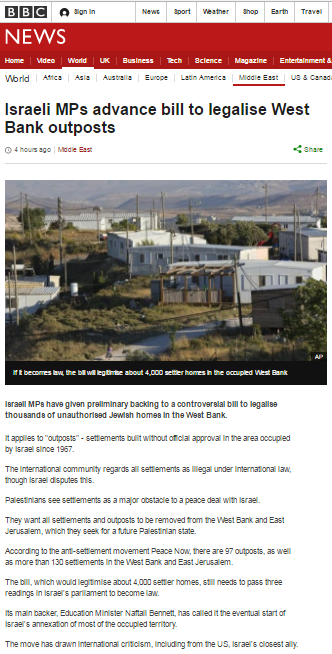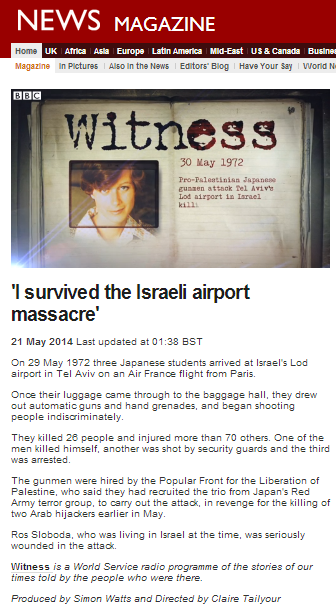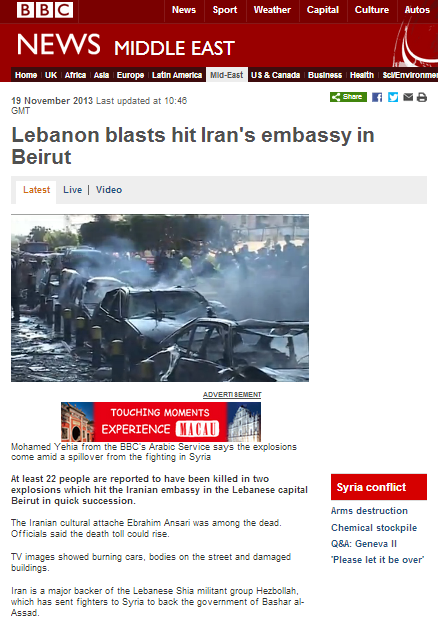On the morning of December 6th the BBC News website’s Middle East page published an article titled “Israel advances bill to legalise West Bank settlements”. Around five hours later the article was completely re-written and the headline changed to read “Israeli MPs advance bill to legalise West Bank outposts”.
As long as a decade ago, the BBC’s ‘style guide’ alerted the corporation’s journalists to the difference between ‘settlements’ and ‘outposts’.
“Outposts
Be careful that you don’t mean settlements. They are very different.
Outposts are usually little more than a few caravans occupying a hilltop. They serve a dual purpose: firstly to create new facts on the ground and expand the land included in the adjoining settlement; secondly to defy the Israeli government and show the strength of the settler movement.
Some of these outposts are called ‘unauthorised outposts’ by the Israeli government – generally meaning no permission was granted for them. You can describe an outpost as unauthorised by the Israeli government if that is accurate and relevant to the specific case you are considering.”
The current version of the BBC’s article informs audiences that:

“Israeli MPs have given preliminary backing to a controversial bill to legalise thousands of unauthorised Jewish homes in the West Bank. […]
The bill, which would legitimise about 4,000 settler homes, still needs to pass three readings in Israel’s parliament to become law.”
BBC audiences are not told that the Attorney General has voiced his opposition to the bill or – as the Times of Israel explains in a useful backgrounder – that:
“Even if the bill makes it through the first, second and third readings, many analysts believe that the Supreme Court will eventually rule that the law is unconstitutional.”
Readers are provided with the usual partial and blinkered BBC mantra concerning ‘international law’, together with uncritical amplification of PLO demands.
“The international community regards all settlements as illegal under international law, though Israel disputes this.
Palestinians see settlements as a major obstacle to a peace deal with Israel.
They want all settlements and outposts to be removed from the West Bank and East Jerusalem, which they seek for a future Palestinian state.”
No effort is made to inform BBC audiences of the details of the bill.
“The bill — if it passes three more readings in the Knesset and is not subsequently struck down by the Supreme Court — would legalize housing units built by settlers on private Palestinian land, if the construction was carried out in good faith: If the settlers did not know that the land they were building on was privately owned by Palestinians, and received some kind of assistance from the state, they would be allowed to remain there. […]
The bill, sponsored by Jewish Home MKs Betzalel Smotrich and Shuli Moalem-Refaeli and Likud MKs David Bitan and Yoav Kisch, allows the government to appropriate land for its own use if the owners are unknown. If the owners are known, they will be eligible for yearly damages amounting to 125 percent of the value of leasing the land or a larger financial package valued at 20 years’ worth of leasing the plots, or alternate plots.”
Neither are readers given any insight into the political background to the bill in this highly superficial report which does little to enhance audience understanding of the issue.




